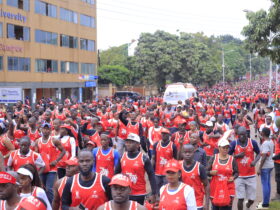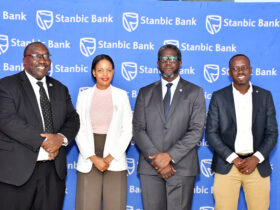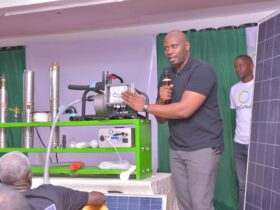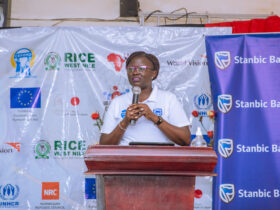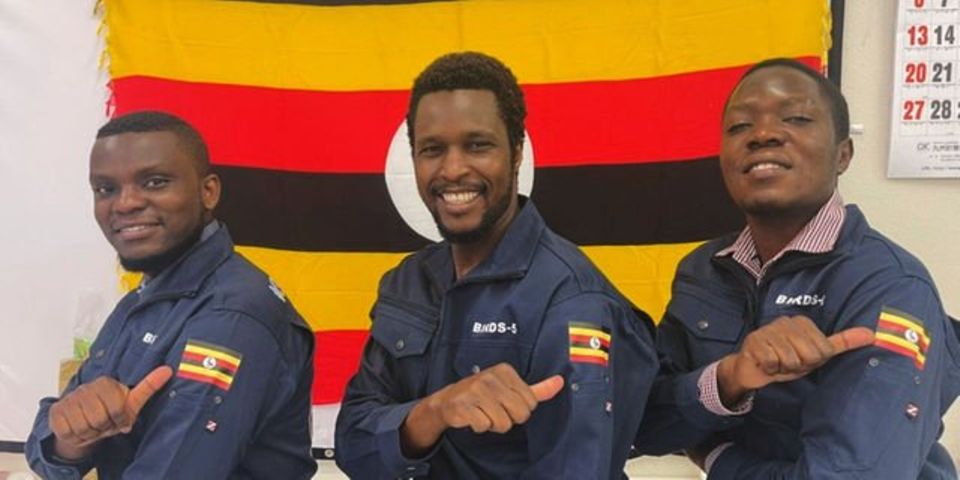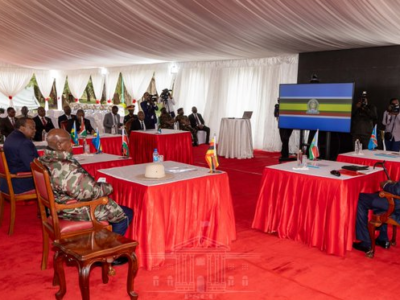Uganda will this year in August launch its first satellite, PearlAfricaSat-1, a technology developed by three Ugandan engineers and their Japanese counterparts, the government has said.
The government said the satellite will improve the accuracy of weather and disaster predictions thereby optimizing agricultural production, improving food security and reducing preventable deaths.
The satellite developers, Mr Edgar Mujuni, Mr Bonny Omara, and Mr Derrick Tebusweke, handed over the technology yesterday to Japan Aerospace Exploration Agency (JAXA) for final testing and approval ahead of the launch.
This innovation is part of the Joint Global Multi-Nation Birds Satellite Project. The initiative began in October 2019 after President Museveni directed on the development of a National Space Agency and Institute.
Team
The development followed Uganda’s deal with Kyushu (Institute of Technology (Kyutech), Japan, which involved upskilling three graduate engineers to design, build, test, and launch Uganda’s first satellite.
Addressing journalists and government officials yesterday in Kampala, Dr Monica Musenero, the minister for Science, Technology and Innovation, said Uganda has been relying on satellites from other countries.
“We didn’t have our own. With this technology, we are creating new careers, and new jobs and we are opening up a space for new businesses. The launch means we will have a better prediction for our weather or disaster,” she said.
“How many times have you left home then around 2pm there is a downpour and floods, and you are caught in town because you didn’t have information that it was going to rain? This is a backward way of living. Many people plant their crops and they are taken by surprise that in the middle, there is drought. Then we incur a lot of losses,” she added.
Usage
Dr Musenero said the technology will also be used to predict epidemics such as foot and mouth disease, which affects livestock, early enough so that the animals can be vaccinated before it becomes a big problem.
“We will also predict plant pests like armyworm so that we can plan ahead of time. If we can detect a crack in the mountain early, we can save lives from deadly landslides,” she said.
Dr Abubaker Waswa Matovu, a lecturer in the Department of Electrical and Computer Engineering, who teaches space science, on the other hand, said the technology will help people get essential information faster.
“We now have autonomous driving where the cars can interact autonomously without having to engage a human brain which could be a cause of the errors that result in accidents. This is an area that can be explored both with satellite technology and other technologies that are evolving. We have observed that there is a need for integration of functionality,” he said.
“Today we are talking about a huge satellite which has integration of so many functionalities that we can all benefit from. We want to see how we can relay information to ordinary people much faster. So with the satellite, we can carry out send information without the ordinary person having to wait for a bulletin to know that there is a risk of landslide or there will be rainfall,” he added.
Dr Waswa explained that the message will be relayed to cell phones directly, “almost instantaneously” so that the ordinary person doesn’t have to rely on an intermediary to receive some of this information.
“We can also automate so many other things with the satellite. It is a very big privilege that Uganda is part of this development,” he added.
Edgar Mujuni
Mr Edgar Mujuni, 3, hails from Mitooma District, originally greater Bushenyi
He is currently undertaking a Master’s degree in space Systems Engineering from Kyushu Institute of Technology in Japan.
He holds a first class Degree in Telecommunications Engineering from Kyambogo University where he developed the best individual project in his final year of an Automatic Stamping robot with digital counters. Edgar did a CISCO Certified Network Associate course from Makerere University.
He studied from Nyakihita Primary School in Mitooma, and did his secondary school education from Mbarara High School where he was the best science student.
In the development of Uganda’s first Satellite (PearlAficaSat-1) he has been responsible for a number of satellite subsystems including communication subsystem that entails all the satellite communication from the ground station to the satellite in the Orbit. This involves a lot of testing because communication is the backbone and failure to communicate with the satellite is not an option.
Bonny Omara
Mr Bonny Omara is a 35-year-old engineer from the Otuke District, northern Uganda. He went to Olilim Primary School and Adwari Senior Secondary School, both in Otuke District. He attended Teso College Aloet in Soroti for his A-Level.
Mr Omara holds a Bachelor’s Degree in Computer Engineering from Busitema University and a post graduate Diploma in Information System Management from Uganda Management Institute. Currently, he is specialising in Space Systems Engineering at Kyushu Institute of Technology (Kyutech), Japan.
From the various satellite projects that he participated in at Kyushu Institute of Technology, he has gained extensive hands-on experience in satellite development, right from problem identification, satellite design, testing, and disposal. With his vast skills and experience, he will undoubtedly develop subsequent satellites in-house in Uganda while boosting the country’s internal capacity to develop the industrial value chain for space science and technology given the political will at hand.
Derrick Tebusweke
Mr Derrick Tebusweke, 29, has a Bachelor’s Degree of science in Electrical Engineering from Makerere University.
His current specialisation is Master of Science in Space Systems Engineering from Kyushu Institute of Technology, Japan.
In Uganda’s first Satellite, he was in-charge of the electrical power sub-system, its safety review verification tests, power budget development, electrical Interface management with other subsystems, and deployment switches mechanism. He attended his secondary education at Makerere College School.


